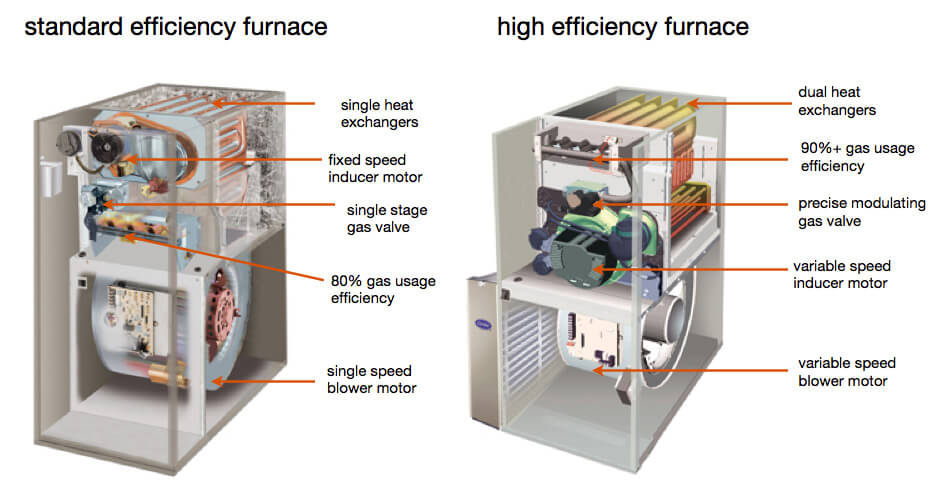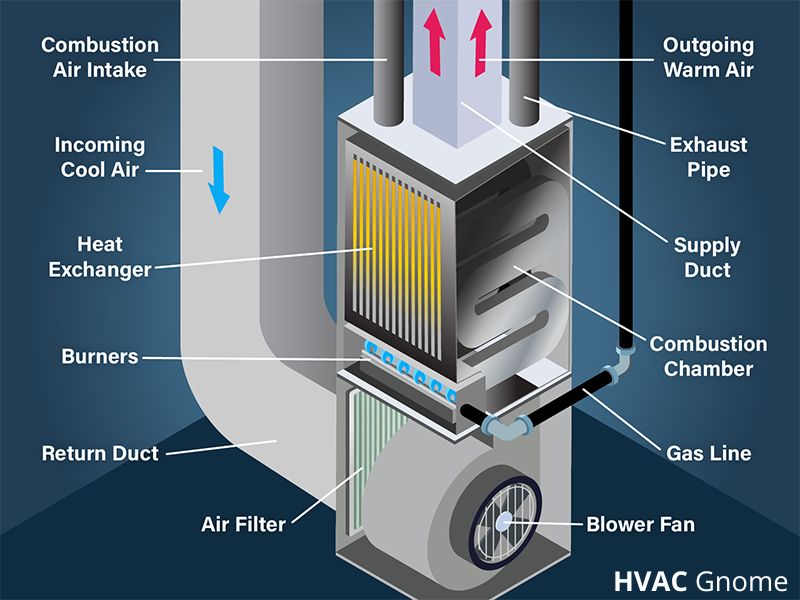
When winter's chill sets in, a reliable heating system becomes essential. Among the most popular and effective options is the gas furnace. These powerful appliances have been keeping homes warm for decades, and for good reason. Let's explore everything you need to know about gas furnaces, from their operation to their benefits and maintenance.
How Gas Furnaces Work
At the heart of a gas furnace is a relatively simple yet efficient process. Here's a breakdown:
- Thermostat Activation: When your thermostat detects that the room temperature has dropped below your set point, it sends a signal to the furnace.
- Ignition: The furnace's control board activates the igniter, which heats up to ignite the gas. Modern furnaces use electronic ignition, which is safer and more efficient than older pilot light systems.
- Gas Combustion: Natural gas or propane is released into the combustion chamber and ignited, creating a flame.
- Heat Exchange: The heat from the combustion process is transferred to a heat exchanger, a series of metal tubes.
- Air Circulation: A blower fan then pushes air across the heated heat exchanger.
- Distribution: The heated air is circulated through your home's ductwork, warming each room.
- Exhaust: The byproducts of combustion, including carbon dioxide and water vapor, are vented outside through a flue.
Types of Gas Furnaces

Gas furnaces come in various configurations, each with its own level of efficiency:
- Single-Stage Furnaces: These furnaces operate at a single, constant speed. They're the most basic and generally the least expensive.
- Two-Stage Furnaces: These furnaces have two operating speeds, allowing them to run at a lower, more efficient level when less heat is needed. This provides better comfort and energy savings.
- Modulating Furnaces: These are the most advanced and efficient type. They can adjust their output in small increments, providing precise temperature control and maximum energy savings.
Benefits of Gas Furnaces
Gas furnaces offer several advantages that make them a popular choice for home heating:
- High Efficiency: Modern gas furnaces boast high Annual Fuel Utilization Efficiency (AFUE) ratings, meaning they convert a large percentage of fuel into usable heat.
- Fast Heating: Gas furnaces can quickly heat your home, providing rapid comfort during cold weather.
- Reliability: With proper maintenance, gas furnaces are reliable and long-lasting.
- Cost-Effective: Natural gas is often a more affordable fuel source than electricity or oil.

Maintenance and Safety
Regular maintenance is crucial for ensuring the safe and efficient operation of your gas furnace. Here are some key maintenance tasks:
- Annual Inspections: Schedule an annual inspection by a qualified HVAC technician.
- Filter Replacement: Replace the furnace filter every one to three months, depending on the type of filter and usage.
- Cleanliness: Keep the area around the furnace clean and free of debris.
- Carbon Monoxide Detectors: Install and maintain carbon monoxide detectors to ensure your safety.

Safety is paramount when dealing with gas appliances. Ensure that your furnace is installed and maintained by a qualified professional. If you smell gas, immediately evacuate your home and call your gas company.
Choosing the Right Gas Furnace
Selecting the right gas furnace for your home involves considering several factors:
- Size: The size of the furnace should be matched to the size of your home. An undersized furnace will struggle to heat your home, while an oversized furnace can lead to short cycling and reduced efficiency.
- Efficiency (AFUE): Look for a furnace with a high AFUE rating to maximize energy savings.
- Features: Consider features such as two-stage or modulating operation, variable-speed blowers, and smart thermostat compatibility.
- Budget: Balance the cost of the furnace with its efficiency and features.
By understanding the operation, benefits, and maintenance of gas furnaces, you can make an informed decision and ensure a warm and comfortable home throughout the winter months. Investing in a quality gas furnace and maintaining it properly will provide years of reliable and efficient heating.
No comments:
Post a Comment
Note: Only a member of this blog may post a comment.